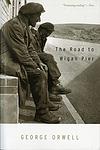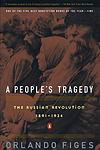The Greatest "European History, Political Ideologies" Books of All Time
Click to learn how this list is calculated.
This list represents a comprehensive and trusted collection of the greatest books. Developed through a specialized algorithm, it brings together 300 'best of' book lists to form a definitive guide to the world's most acclaimed books. For those interested in how these books are chosen, additional details can be found on the rankings page.
Genres
European History is a category of books that focuses on the historical events, people, and cultures of Europe. It covers a wide range of topics, including the ancient civilizations of Greece and Rome, the Middle Ages, the Renaissance, the Enlightenment, and the modern era. This category of books explores the political, social, economic, and cultural developments that have shaped Europe over the centuries, from the rise and fall of empires to the impact of wars and revolutions. It provides readers with a deeper understanding of the rich and complex history of Europe and its influence on the world.
The "Political Ideologies" category encompasses a diverse collection of books that delve into the broad spectrum of political beliefs, systems, and theories that have shaped human societies throughout history and continue to influence contemporary governance and social structures. This genre offers readers an exploration of the foundational principles, moral values, economic models, and visions for societal organization that underpin various political ideologies, such as liberalism, conservatism, socialism, communism, fascism, and anarchism, among others. It provides critical insights into how these ideologies have been conceptualized, their historical development, key proponents, and the practical implications of their implementation. Through comparative analysis and theoretical discourse, books in this category aim to enhance readers' understanding of the political landscape, encourage critical thinking about governance and policy, and foster informed civic engagement. Whether written by political scientists, philosophers, historians, or activists, these works serve as essential resources for anyone seeking to grasp the complexities of political thought and its impact on the world.
Countries
Date Range
Reading Statistics
Click the button below to see how many of these books you've read!
Download
If you're interested in downloading this list as a CSV file for use in a spreadsheet application, you can easily do so by clicking the button below. Please note that to ensure a manageable file size and faster download, the CSV will include details for only the first 500 books.
Download-
1. Homage to Catalonia by George Orwell
The book is a personal account of the author's experiences during the Spanish Civil War, specifically his time with the POUM (Partit Obrer d'Unificació Marxista) militia in Catalonia. He provides an in-depth look at the social revolution that took place, the daily life of a soldier, the political infighting and betrayals among the Republican factions, and his eventual disillusionment with the cause he initially supported. The book is both a war memoir and a detailed analysis of a complex political situation.
-
2. Das Kapital by Karl Marx
This influential work is a comprehensive critique of political economy, exploring the complex nature of capitalism, its production processes, and its societal impact. The book delves into the intricacies of commodities, labor theory of value, surplus value, and exploitation, arguing that capitalism is inherently unstable and prone to periodic crises. It also posits that the capitalist system ultimately leads to the concentration of wealth in fewer hands, causing social inequality and paving the way for its own demise. The book is widely regarded as a foundational text in the development of socialist and communist ideologies.
-
3. The Wealth of Nations by Adam Smith
This influential economic book presents a groundbreaking theory that argues for free market economies. The author posits that individuals acting in their own self-interest within a system of natural liberty will result in societal benefit, a concept often referred to as the "invisible hand" theory. The book also critiques mercantilism and explores concepts such as the division of labor, productivity, and free markets. It is widely considered one of the foundational texts in the field of economics.
-
4. The Captive Mind by Czesław Miłosz
"The Captive Mind" is a thought-provoking exploration of the intellectual and moral dilemmas faced by artists and intellectuals living under oppressive regimes. Through a series of powerful and insightful essays, the author delves into the psychological and ideological transformations experienced by individuals who compromise their values and conform to the demands of totalitarianism. With a blend of personal anecdotes, historical analysis, and philosophical reflections, this book offers a profound examination of the complexities of intellectual freedom and the power of ideology.
-
5. The Drowned and the Saved by Primo Levi
This book is a deeply moving exploration of the Holocaust, written by a survivor. It delves into the horrifying experiences at Auschwitz, examining the psychological impact on the prisoners, the brutal behavior of the guards, and the complex moral dilemmas faced by both. The author also discusses the concept of memory and its unreliability, especially in the context of such traumatic events, and analyzes the ways in which the Holocaust has been represented and remembered in society. The book serves as a profound meditation on the human condition under extreme circumstances.
-
6. To the Finland Station by Edmund Wilson
This book is a historical narrative that explores the evolution of revolutionary thought, from the French Revolution through Karl Marx's theories to the Russian Revolution. It focuses on the lives and ideas of key figures in radical political thought, including Marx, Engels, Lenin, and Trotsky. The book culminates in the pivotal moment when Lenin arrives at the Finland Station in Petrograd in 1917, marking the start of the Bolshevik Revolution.
-
7. Spain, Take This Chalice from Me by César Vallejo
"Spain, Take This Chalice from Me" is a poignant collection of poetry that reflects on the Spanish Civil War's brutal impact. The author, deeply moved by the conflict, uses powerful imagery and emotive language to express the heartbreak, despair, and hope experienced by the Spanish people. The poems serve as a profound commentary on war, exploring themes of sacrifice, struggle, and resilience in the face of adversity.
-
8. Lenin's Tomb: The Last Days of the Soviet Empire by David Remnick
This book provides an in-depth account of the final days of the Soviet Union, focusing on the period from 1989 to 1991. It explores the political, economic, and social factors that led to the collapse of the Soviet empire, including the role of key figures such as Mikhail Gorbachev, Boris Yeltsin, and others. The author, a journalist who lived in Moscow during this time, combines historical analysis with personal observations and interviews, offering a unique perspective on this significant period in world history.
-
9. The Road to Wigan Pier by George Orwell
This book is a sociological exploration of the bleak living conditions among the working class in Lancashire and Yorkshire, England, in the 1930s. The author, who lived among the people, vividly describes the hardships of the poor and criticizes the systems that make them so. The latter part of the book presents a discussion on class and possible socialist solutions to the issues presented in the first part. It's a powerful critique of British society at the time and a call for better conditions for the working class.
-
10. The Burden of Our Time by Hannah Arendt
"The Burden of Our Time" is a profound exploration of totalitarianism and the nature of power. The author delves into the rise of authoritarian regimes in the 20th century, particularly focusing on the Nazi and Stalinist systems. The book examines the socio-political conditions that enable such regimes to seize power, and the mechanisms they use to maintain control. It also presents a philosophical analysis of the human condition, exploring themes of freedom, authority, and the public and private realms of life.
-
11. My Life by Leon Trotsky
This autobiography provides a detailed account of the life of a prominent Russian revolutionary and Marxist theorist. The book traces his early life, education, and political development, his role in the Russian Revolution and Civil War, his leadership of the Red Army, and his expulsion from the Communist Party and subsequent exile. It offers a unique perspective on key events in 20th-century history and an insight into the author's complex personality and intellectual development.
-
12. The Last Days of Hitler by Hugh Trevor-Roper
This book delves into the final days of Adolf Hitler's life, providing a detailed account of the events that unfolded in his bunker during the last ten days of World War II. It is based on interviews with surviving members of Hitler's close circle and other witnesses, as well as captured German documents. The author presents an in-depth analysis of Hitler's mental state, his relationships with his staff, his suicide, and the subsequent cover-up by his loyal aides. The book also debunks various myths and rumors about Hitler's death and escape.
-
13. Gulag: A History by Anne Applebaum
"Gulag: A History" provides an in-depth historical account of the Soviet Union's forced labor camp system, known as the Gulag. The book explores the inception of these camps during the reign of Vladimir Lenin, their expansion under Joseph Stalin, and their eventual decline and closure. It also delves into the daily lives of the prisoners, their hardships, and the brutal conditions they endured. The book is based on a wealth of archival material, personal interviews, and memoirs, offering a comprehensive understanding of one of the darkest periods in human history.
-
14. A People's Tragedy by Orlando Figes
"A People's Tragedy" is an in-depth exploration of the Russian Revolution from 1891 to 1924. The book offers a comprehensive study of the Revolution's roots, its progression, and its aftermath, from the famine that gripped Russia in the 1890s, through the abdication of Tsar Nicholas II, to the establishment of the Bolshevik regime and the death of Lenin. The author uses a broad range of sources, including personal letters, diaries, and government documents, to present a detailed, humanized view of the Revolution's impact on everyday individuals, bringing to life the experiences of peasants, workers, soldiers, and intellectuals.
-
15. The Pope and Mussolini by David I. Kertzer
This book delves into the secret relationship between Pope Pius XI and the Italian dictator Benito Mussolini. The narrative reveals how each man relied on the other to consolidate his power and achieve his political goals, ultimately leading to the Vatican’s endorsement of the Fascist regime. The author uses newly available sources from the Vatican archives to illuminate this dark chapter in the history of the Catholic Church and Italy.
Reading Statistics
Click the button below to see how many of these books you've read!
Download
If you're interested in downloading this list as a CSV file for use in a spreadsheet application, you can easily do so by clicking the button below. Please note that to ensure a manageable file size and faster download, the CSV will include details for only the first 500 books.
Download













